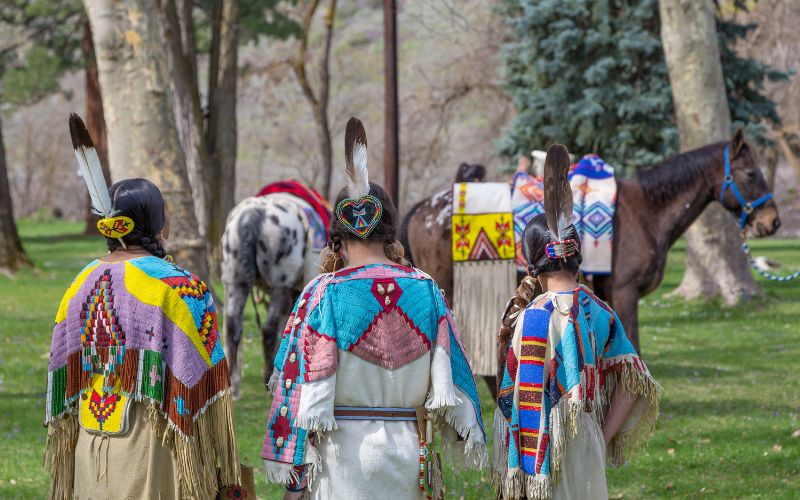
- Details
- By Native News Online Staff
A mix of six tribal nations and Native organizations will receive a total of $1.8 million for tourism infrastructure and capacity building in grants announced today by the U.S. Forest Service and American Indian Alaska Native Tourism Association.
Recipients include: the Alutiiq Museum & Archaeological Repository in Kodiak, Alaska; Bay Mills Indian Community in Bimley, Michigan; Chief Joseph Foundation in Lapwai, Idaho; Organized Village of Kasaan in Kasaan, Alaska; Pit River Tribe KWAHN Corporation in Burney, California; and Snoqualmie Indian Tribe in Snoqualmie, Washington.
In 2018, The American Indian Alaska Native Tourism Association (AIANTA)—the only national organization dedicated to advancing cultural tourism in Native Nations and communities across the United States—signed an agreement with the U.S. Forest Service to collaborate on the Native American Tourism & Improving Visitor Experience (NATIVE) Act grant funding.
The Request for Grant Proposals solicited applications from Tribal Nations, Tribal Enterprises and native nonprofits that border and/or have historic ties to U.S. Forest Service-managed lands and regions, according to a press release from AIANTA.
“As the expert in Indigenous tourism and the only organization to advance cultural heritage tourism across our Native Nations and communities in the U.S., AIANTA is proud to have the capacity to create opportunity for the inclusion of American Indian, Alaska Native and Native Hawaiians in the tourism industry,” said AIANTA CEO Sherry Rupert in a statement. “We are excited to see these six recipients transform and strengthen their cultural tourism programs over the next few years.”
More Stories Like This
Native News Weekly (August 25, 2024): D.C. BriefsUS Presidents in Their Own Words Concerning American Indians
Native News Weekly (January 18, 2026): D.C. Briefs
Federal Judge Orders ICE to Halt Use of Pepper Spray, Arrests of Peaceful Protesters in Twin Cities
Tunica-Biloxi Cultural Leader John D. Barbry Walks On
Help us defend tribal sovereignty.
At Native News Online, our mission is rooted in telling the stories that strengthen sovereignty and uplift Indigenous voices — not just at year’s end, but every single day.
Because of your generosity last year, we were able to keep our reporters on the ground in tribal communities, at national gatherings and in the halls of Congress — covering the issues that matter most to Indian Country: sovereignty, culture, education, health and economic opportunity.
That support sustained us through a tough year in 2025. Now, as we look to the year ahead, we need your help right now to ensure warrior journalism remains strong — reporting that defends tribal sovereignty, amplifies Native truth, and holds power accountable.
 The stakes couldn't be higher. Your support keeps Native voices heard, Native stories told and Native sovereignty defended.
The stakes couldn't be higher. Your support keeps Native voices heard, Native stories told and Native sovereignty defended.
Stand with Warrior Journalism today.
Levi Rickert (Potawatomi), Editor & Publisher


